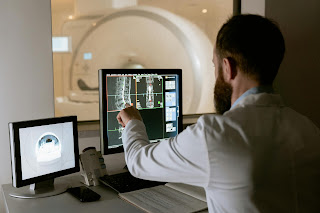So, memory loss is something a lot of us worry about, especially as we get older. The usual advice is to play brain games, eat right, and exercise, but let's dig a bit deeper and find some less conventional ways to give our brains a boost.
First up, let's talk about the power of storytelling. Yep, telling stories. When you share stories, whether it’s about your day or reminiscing about the past, you’re engaging multiple parts of your brain. It’s not just about recalling facts; it’s about structuring them, adding emotion, and creating connections. This kind of activity can help strengthen memory pathways in a fun and meaningful way.
Another interesting approach is learning a new language. Now, I know this might sound daunting, but it’s incredibly effective. When you learn a new language, you’re challenging your brain to think in different ways, recognize new patterns, and remember vocabulary and grammar rules. Plus, it’s a fantastic way to keep your brain young and vibrant.
Have you ever tried dancing? I don’t mean just for exercise, but as a way to improve memory. Learning and remembering dance routines requires coordination, rhythm, and memory. It's like a full-body workout for your brain. So, whether it's ballroom, salsa, or even line dancing, getting into the groove can help sharpen your mind.
Let’s not forget the impact of social connections. Engaging in meaningful conversations with friends and family can significantly boost your cognitive functions. When you interact socially, you’re constantly processing new information, recalling past events, and even thinking on your feet. It’s like a workout for your brain that also warms your heart.
Here’s a surprising one: aromatherapy. Certain scents like rosemary and peppermint have been shown to enhance memory and concentration. A little bit of essential oil in a diffuser or even just sniffing a sprig of rosemary can give your brain a nice little kick.
Meditation is another gem. It’s often touted for its stress-reducing benefits, but it also improves memory by increasing gray matter in the brain. Mindfulness meditation, in particular, helps improve focus and attention, which are crucial for memory retention. Just a few minutes a day can make a big difference.
Finally, don’t underestimate the power of creativity. Engaging in creative activities like painting, writing, or even gardening can help improve your memory. These activities require you to plan, remember details, and make connections, all of which are great for brain health.
So, next time you’re thinking about how to keep your memory sharp, consider diving into storytelling, learning a new language, dancing, socializing, enjoying some aromatherapy, meditating, or getting creative. These unique approaches can help keep your brain healthy and your memory strong in ways that are both enjoyable and effective. Give them a try and see what works best for you!

















